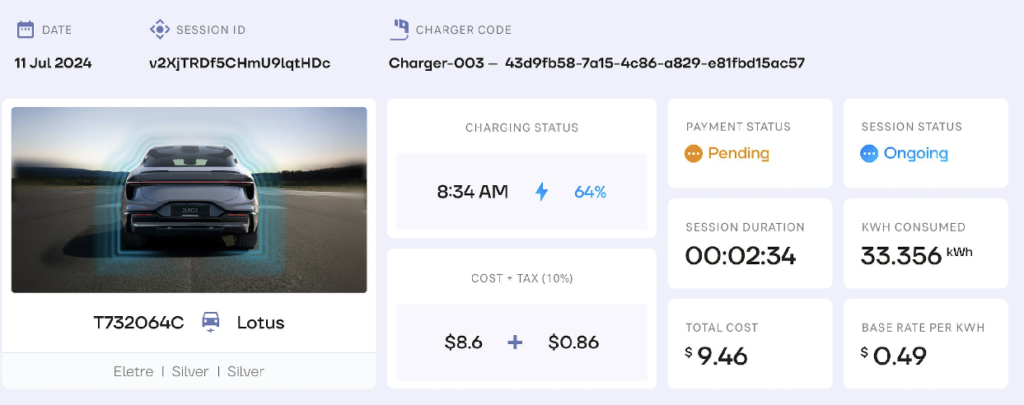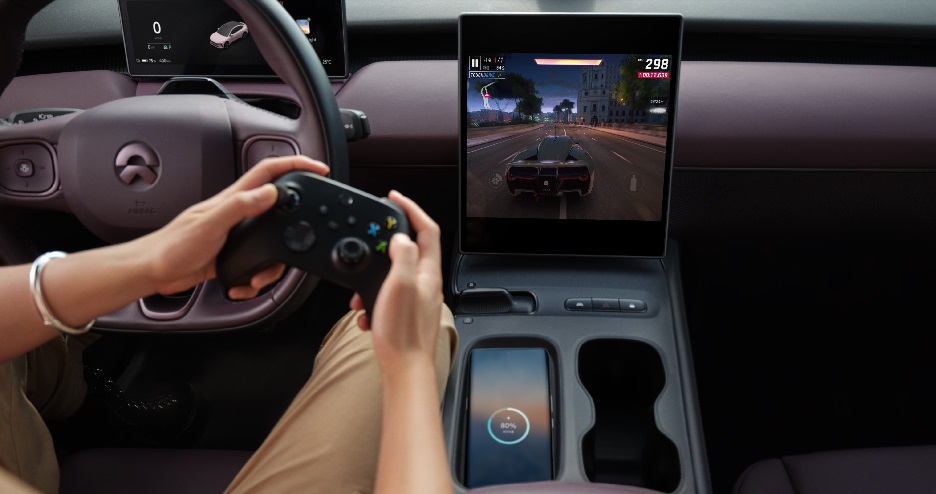Currently, artificial intelligence (AI) is revolutionizing various industries, and electromobility is no exception.
Several companies are adopting advanced AI technologies in Europe to optimize user experiences and make sustainable transport more accessible, straightforward, and cost-effective.
Such is the case with Avanza, Juice, Volvo, RetailSonar, and NIO. What projects are they working on? Mobility Portal Europe shares the details.
Avanza
Spain’s leading urban and metropolitan mobility operator is developing Digizity, an ambitious project co-funded by the European Union (EU)‘s Next Generation funds through R&D.
Digizity stands as Europe’s largest project for electric and connected vehicles, aimed at automating, decarbonizing, and digitizing urban transport through zero-emission buses.
Avanza focuses on several key pillars to achieve these goals: automation, energy efficiency, artificial intelligence, and data management.
“It’s a very ambitious plan that encompasses several aspects of sustainable mobility. It not only makes bus driving easier for operators but also enhances passenger comfort and safety,” states Valentín Alonso, CEO of Avanza, in dialogue with Mobility Portal España.
Various entities participate in this project, including the Zaragoza City Council, Irizar, Jema Energy, Hispacold, Telnet, Nextium by Idneo, Itainnova in Aragón, CATAG in Galicia, Tecnalia in the Basque Country, and Novadays.
The 12-metre Irizar ie-tram bus is ready for final testing in a real-world environment, integrating state-of-the-art communication systems.
Parallelly, automation was reflected in the AutoMOST project carried out in Malaga, becoming Europe’s first driverless bus.
“This constitutes our second step towards Digizity, and once completed, we will evaluate our future steps,” explains the company’s director.
Juice
Through its flexible platform and via computer vision and artificial intelligence, Juice enables operators of all types to ensure hassle-free experiences for drivers, making sustainable transport accessible, simple, and profitable.
“We work with charge point operators (CPOs) to implement this technology to help millions of end users, saving billions of minutes of time wasted on inefficient processes globally,” says Jan Schulte, CRO and Co-Founder at Juice, in an interview with Mobility Portal Europe.
They are also working hand in hand with parking operators, electric vehicle (EV) supply equipment companies, and charge management software providers.
According to Schulte, many of the firms they talk to focus on infrastructure, cars, and batteries, but not on the end-user and their daily experience.
“Having to register with different apps, use various cards, and use often-broken payment terminals constitutes a universal problem people face every day,” says the CRO.

These are the barriers Juice seeks to eliminate, regardless of what vehicle they have, or which charger they want to use.
“We use our computer vision platform to eliminate all these barriers,” explains Schulte.
He continues: “We call it Face ID for mobility: We recognise a vehicle as an object and identify its Make, Model, colour, and plate, as well as a number of other security checks in the background. Then, we automatically start a charging or parking session.”
NIO
Founded in 2014, NIO has committed to offering high-performance smart electric vehicles and delivering the best possible experience to its users.
Nine years since its inception, the firm has established itself as a leader in the global premium EV market, also becoming the first automotive company to list on the New York, Hong Kong, and Singapore stock exchanges.
The company has developed NIO Full Stack, comprising 12 technological domains ranging from smart chips and hardware to battery systems and electric propulsion.
This platform encompasses vehicle connectivity, intelligent and assisted driving, smart energy, advanced manufacturing, artificial intelligence, and global digital operations.
It is worth mentioning that NIO operates research and development centres and manufacturing facilities in various cities, including Shanghai, Hefei, Beijing, Nanjing, Shenzhen, Hangzhou, San José, Munich, Oxford, Berlin, Budapest, and Singapore.
RetailSonar
Currently, one of the biggest challenges facing charging point operators (CPOs) is how to choose the optimal locations to install charging stations. This is where ChargePlanner comes into play.
It is a software-as-a-service (SaaS) solution that helps predict the usability of future sites and define their optimal configuration, determining the potential for slow, fast, and ultra-fast charging separately.
This software helps the sector make the right location decisions based on data and artificial intelligence.
These rich data sources differentiate ChargePlanner apart from its competitors.

Stellantis
With a commitment exceeding 50 billion euros in electrification and software development by 2030, Stellantis aims to increase the number of connected vehicles on the road significantly.
This strategy not only enhances the customization and personalization of vehicles but also revolutionizes how they are designed, engineered, and operated.
Central to this evolution is the STLA Brain, a cloud-integrated electrical/electronic and software architecture enabling rapid deployment of new features through over-the-air (OTA) updates.
This approach ensures vehicles remain cutting-edge with continuous improvements driven by advancements in artificial intelligence.
Stellantis’ partnership with Amazon underscores its commitment to leveraging cloud solutions for enhanced computing capabilities and augmented reality applications, transforming the in-vehicle experience into a seamlessly connected and personalized environment through innovations like the STLA SmartCockpit and STLA AutoDrive platforms.
Volvo
The iconic brand in the automotive industry is also leveraging artificial intelligence to enhance its electric cars.
The company has adopted a mixed approach to AI development, establishing collaborations with independent research centers and forming dedicated in-house teams for research and development.
In 2018, Volvo partnered with NVIDIA to develop the “brain” for its upcoming models.
This alliance with academic institutions and renowned research centers has significantly driven innovation in the field.
Additionally, it has established specific internal teams for AI development, investing in talent and resources, including engineers and data scientists, who work closely with other departments to deliver maximum novelty and safety to their customers.








